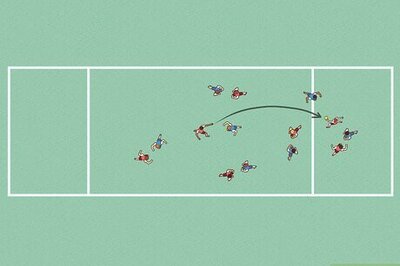
views
The National Council for Education Research and Training (NCERT) has implemented notable revisions in the history segment tailored for Class 12 students, focusing on the emergence and decline of the Harappan civilisation, as reported by The Indian Express. These alterations stem from recent investigations into ancient DNA retrieved from archaeological sites at Rakhigarhi, an Indus Valley location in Haryana. Such studies challenge the notion of Aryan migration and prompt a call for deeper exploration into potential connections between the Harappans and the Vedic populace.
According to the Indian Express, these modifications in the portrayal of the Harappan Civilisation are supported by convincing evidence from archaeological discoveries, prompting curriculum revisions. While updates have been made across many subjects for different grades including 7, 8, 10, 11, and 12, the most significant changes are visible in the Class 12 History textbook, particularly in the chapter titled “Bricks, Beads, and Bones – The Harappan Civilisation,” within the ‘Themes in India History Part-I.’
The Council has added three new paragraphs addressing the current DNA inquiry in Rakhigarhi. The study specifically contradicts the hypothesis of Aryan immigration and emphasises the indigenous origins of the Harappan population in that region.
Meanwhile, in the year 2023, as part of the rationalisation process leading to textbook reprints in 2022-23, NCERT discreetly omitted sections from reprinted political science, history, and sociology textbooks for Classes 11 and 12. These sections encompassed references to Mahatma Gandhi, the RSS, Nathuram Godse (Gandhi’s assassin), along with events from more contemporary political history such as the Emergency period (1975-77) and the communal unrest during the 2002 Gujarat riots.
Also Read| New Progress Cards to Assess Students’ Holistic Development, Pilot Run in Aug-Sep; Teacher-training to be Focus Area: CBSE Secretary
Additional observations have also shown that a different set of deletions had been made, including mentions of Islamic monarchs from the Mughal and Delhi Sultanates. Interestingly, these deletions were not explicitly listed under the “rationalized content” page on the Council’s website.
Notably, in November of last year, the NCERT constituted a 35-member group to develop instructional and educational resources as well as curriculum content for subjects such as political science, sociology, psychology, geography, and history for grades 6 to 12.
















Comments
0 comment